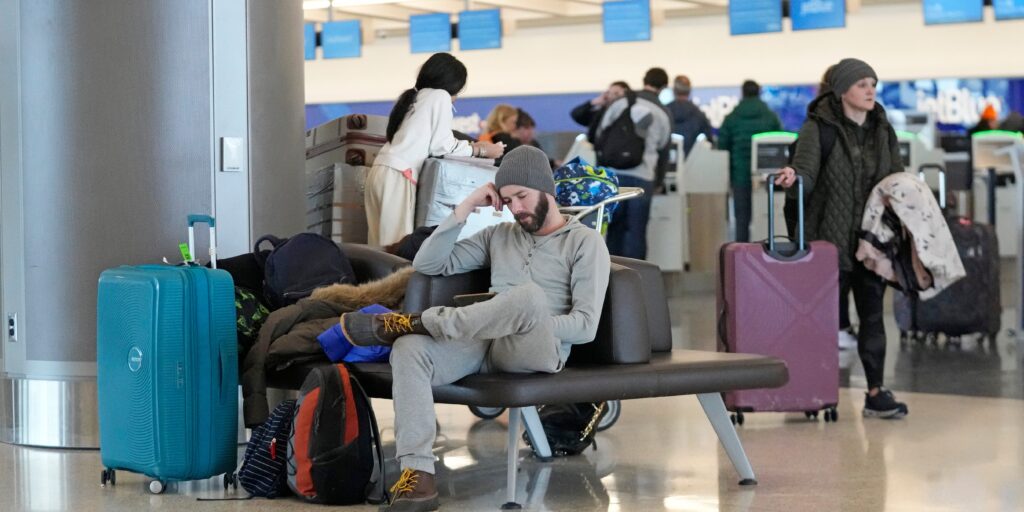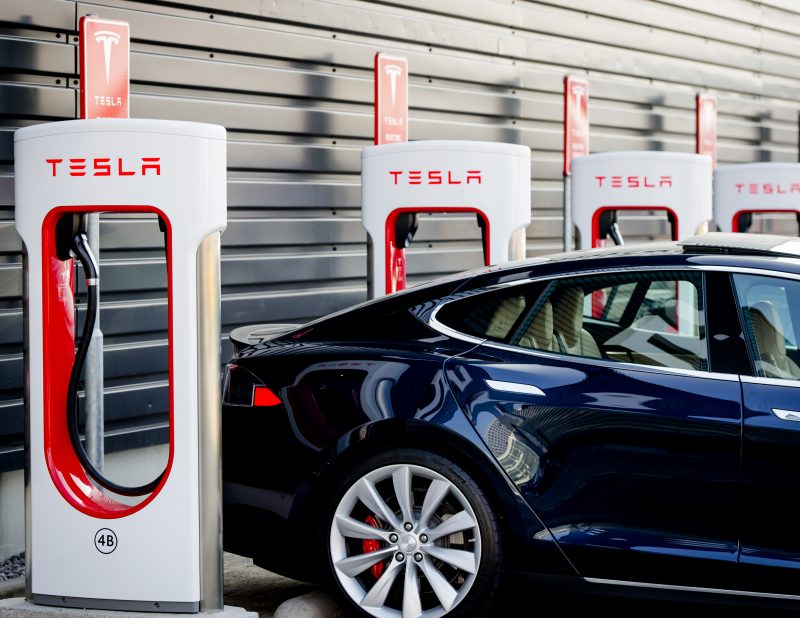- Flyers have recently been fighting high airline prices by "skiplagging."
- That means buying cheaper tickets with a layover in their actual destination city instead of a direct flight.
- This only works because air fares violate the "triangle inequality," one of the basic laws of geometry.
One of the hottest trends in saving money on travel right now only works because of bad math on the airlines' part.
Skiplagging, also known as "hidden-city" ticketing, is the practice of booking a one-stop flight with the intention of "skipping" the second leg and getting off in the layover city. Simply, it's booking a flight from airport A to airport B via some layover airport C, and then getting off at C.
People can save hundreds of dollars doing this because a nonstop flight from A to B is many times more expensive than booking one with a layover in the intended destination city.
However, airlines hate this hack because they see it as people cheating them out of potential revenue. And, they won't shy away from punishing people who get caught, including canceling the return flight of people who skiplag on the outbound journey.
And it's all only possible because airfares don't follow one of the most intuitive rules in all of math.
One of the most basic laws of geometry is something called the "triangle inequality." If you're trying to come up with some measure of distance between points in a space, one of the basic rules that measure has to follow is that the distance between two points has to be less than or equal to the distance from your first point to some other point and then back to your original second point.
The inequality gets its name from how triangles work in classic plane geometry. If you have a triangle, the sum of the length of any two sides of that triangle is bigger than the length of the third side.
We might expect that airline fares would more or less follow this rule and act as a kind of distance metric between cities. Between fuel, maintenance, and crew pay, it should cost more to fly a plane from New York to Amsterdam, followed by a leg from Amsterdam to London, than it would to just fly the plane from New York to Amsterdam. That difference in costs should be reflected in the price of tickets between the three cities.
But that clearly is not always the case, and that violation of the triangle inequality is what makes skiplagging possible. The fact that it's sometimes cheaper to book a flight from New York to London that has a stop in Amsterdam than to book a nonstop from New York to Amsterdam shows that the airlines are breaking the triangle inequality.
In a 2013 blog post, math and science writer Brian Hayes came up with a possible explanation for this triangle-inequality-violating phenomenon, noting that the discrepancy could come from the direct flight being in much higher demand than the layover flight, leading airlines to charge more for the nonstop.
Moreover, airlines' hub-and-spoke model means many travelers have to typically fly through a major hub to get to smaller regional cities. But, the rise of low-cost carriers offering point-to-point routes has made the market more competitive, prompting mainline carriers to lower the price for these connecting itineraries.
If airlines want to fight skiplagging, a good first start would be making airfares into a geometrically-accurate metric.










